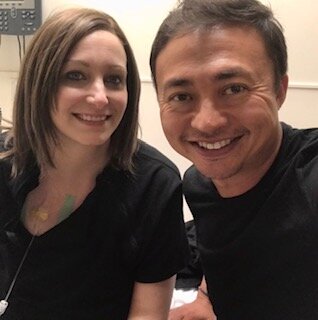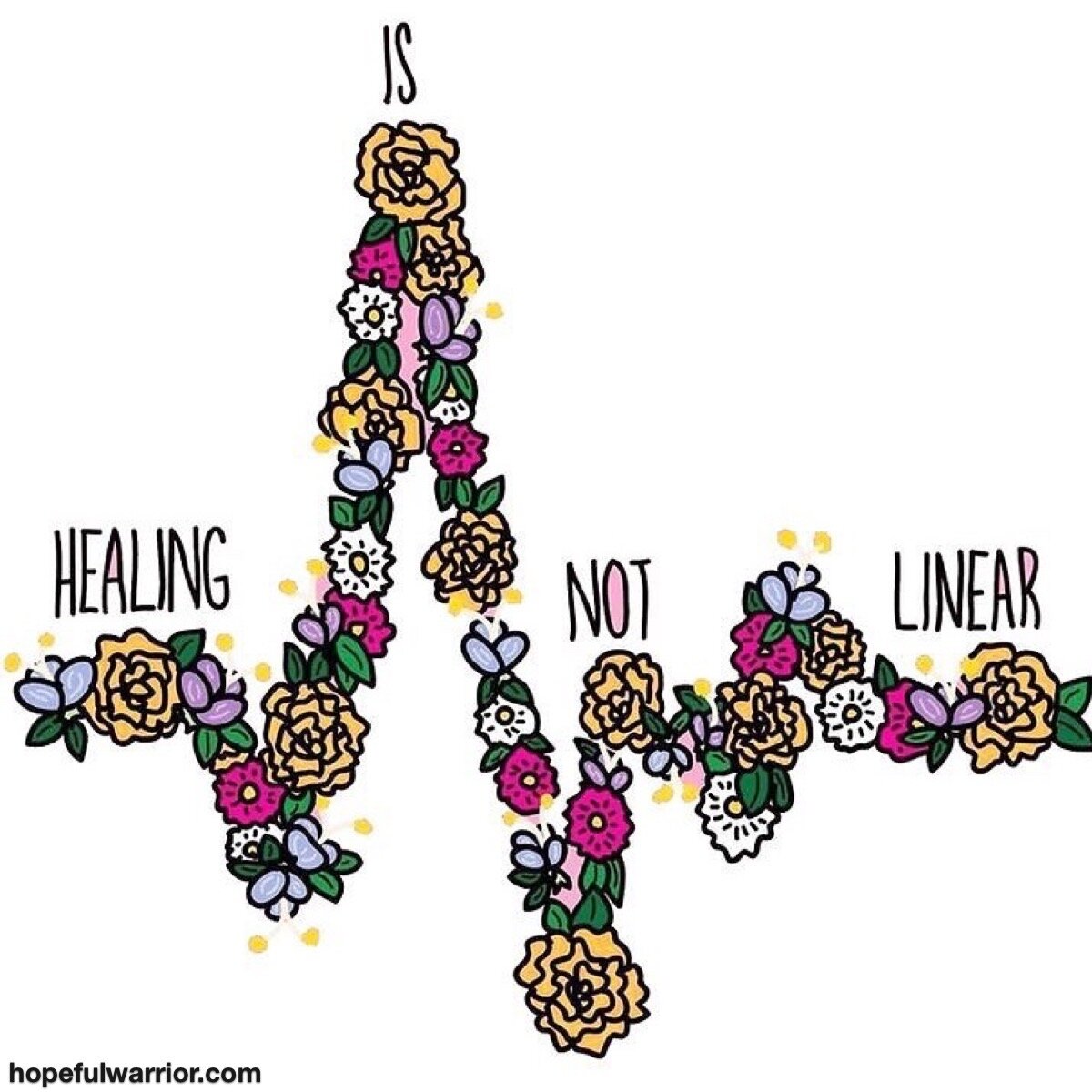According to the two-box theory of immunity, when your body is exposed to a pathogen, it mounts an immune response via your T-cells and B-cells. Your bodies’ innate immune system gets triggered by an antigen in the first 72 hours from exposure and once that happens within three or more days, your adaptive immune system then kicks in to create an anti-body to help provide further immunity and stop the spread of disease.
This two-box theory of immunity dating back to the early 1900s supports medical interventions like vaccinations with the belief that it is better to inject a weakened version of the pathogen or virus directly into the adaptive system to help provide immunity instead of being naturally exposed to a disease like the measles or chickenpox.
Are the Microbiome and the Virome the Missing Links to Immunity?
Our immune system is simply amazing. It helps keep us healthy by keeping viruses and bacteria out of our bodies and by attacking foreign invaders and rogue cells. But this is a delicate balancing act because although we want our immune system to vigilantly police our body, we do not want it to attack our own cells. However, when it comes to treating cancer, this is exactly what we need our immune system to do.
Cancer cells are tricky. They fight back by releasing signals to the immune system that tell it to ‘turn off.’ Immunotherapy works by harnessing our own immune system to better target and eliminate cancer by turning on – and sometimes turning off these ‘checkpoints’ that slow or stop immune responses.
With advances in systems biology and new notions of systems immunology over the last 20 years, scientist are now beginning to understand that our bodies’ interferon system is the missing link between the innate and adaptive parts of our immune system.
The Interferon System Plays a Critical Role in Our Immune Response
The Interferon System was discovered in 1957 by Isaacs and Lindenmann. Their discovery led to them finding several proteins that are produced by the body’s cells in response to viruses. These cell proteins play an important role in our bodies’ immune response. They found that the interferon system creates a feedback loop between the adaptive and innate immune system that regulates inflammation, immunity and overall health. Research conducted in the 1970s also revealed that these substances could not only prevent viral infection but also suppress the growth of cancers in some laboratory animals.
Within the last 20 years, scientists have also discovered another subsystem within our immune system called the microbiome consisting of 10 trillion bacteria in our gut and potentially as much as 100 trillion viruses in our virome. New research shows not only do our microbiome and virome regulate our digestion, they also play an extremely important role in our mental and overall health.
Exciting new research into immunotherapy effectiveness suggests a patient’s microbiome could be a critical factor for immunotherapy success. Two recent studies in Science suggests the microbiome plays an important role in predicting what patients are likely to benefit from immunotherapy and treatment could be made more effective for more people by tailoring treatment to the patient’s unique microbiome.
Helping Dispel the Myth All Viruses and Bacteria Are Deadly
According to Dr. Shiva Ayyadurai, viruses and bacteria do not kill us. It is our bodies’ reaction and sometimes overreaction to viruses and bacteria that proves fatal. When it comes to COVID-19, the virus becomes fatal when it causes a “cytokine storm” in the patient’s body.
Critically important studies emerging from China suggest that for many patients who die of Covid-19, it may be their own immune system, rather than the virus itself, that deals the fatal blow. This overreaction of the immune system is called a cytokine storm.
During a cytokine storm, an overreactive immune system ravages healthy lung tissue, leading to acute respiratory distress and multi-organ failure. Untreated, cytokine storm syndrome is usually fatal. It is important to note, patients in other studies who developed cytokine storm syndrome after coming ill from viruses often possessed slight genetic immune defects resulting in the uncontrolled immune response.
Recently, a number of specific anti-cytokine treatments have proven effective in treating a variety of cytokine storm syndromes, including those triggered by viruses. While randomized trials will be needed to confirm which, if any, of these approaches will effectively treat Covid-19-infected patients with cytokine storm syndrome, IL-6 blockade has recently been reported to be in use in China with successful outcomes in some individuals receiving this as part of their treatment.
Early reports also indicate there has been success treating patients with high doses of intravenous Vitamin C, as much as 24,000 mg/day. Another study showed that a dose as low as 200mg.day of Vitamin C has helped reduce the duration of pneumonia in infants and children ages 5 and younger.
Building & Supporting Natural Immunity
Throughout my treatment and during the last two years of being in remission from Hodgkin Lymphoma, I’ve been working on strengthening my immunity through various diet and lifestyle changes and well as through increased supplementation to help increase my chances of long-term remission.
Here are some of the ways I have been working to build immunity since finishing treatment:
Dietary Changes
I went dairy-free about a year ago to help reduce my inflammation levels. I substitute with almond milk-based alternatives. I also make sure to eat mostly non-GMO/organic foods and stay hydrated by drinking about a half-gallon of water every day. I have also tried to eliminate gluten from my diet as much as possible and cut down on my sugar intake overall.
Getting Enough Rest
I’ve made a habit within the last year to ensure I am getting at least 7 hours of sleep every night. Also taking time to meditate and have slow down in a quiet place for a few minutes each day has done wonders for my mental health and overall clarity.
Exercise
Since finishing treatment in August of 2018, I’ve been able to resume a pretty active lifestyle. However, having dysautonomia makes it difficult to tolerate certain types of exercise for long so I mostly have been going on long walks and doing yoga at-home. Staying active is an important part of maintaining our health so I make it a habit to try to stay as active as possible.
Supplements
Growing scientific research shows that there is an extensive network of antioxidants and enzymes produced within our body. This antioxidant network of nutrients, enzymes and various proteins help to maintain a state of redox balance within our bodies.
Having low antioxidant status such as low Vitamin A-D-E-C and low Glutathione level can produce a redox imbalance in our bodies. Our bodies naturally work to maintain a state of redox balance aka homeostasis, through various antioxidant enzymes in the body. However, food-derived antioxidants (what we eat, how much of it, how often and its metabolized by the gut) also play an important role in our health.
Psychological stress, competition, dietary changes, heat stress, infection and trauma are all well proven to alter this important function. Additionally, redox is significantly altered patients suffering from chronic health conditions like cardiovascular disease, type 2 diabetes, obesity or autoimmune inflammatory diseases, like chronic fatigue syndrome.
The following supplements can help improve cellular function and boost immune health:
Supplements for Boosting Overall Immune Health
Vitamin A
Vitamin A helps maintain a proper balance T cell functions within our immune systems and it also helps prevent excessive or prolonged inflammatory reactions. Our body naturally converts beta carotene to vitamin A. Beta carotene helps support healthy tissues and DNA function. Also, your body produces less Vitamin A as you age.
Recommended product: Beta Carotene (with mixed carotenoids)
Vitamin C
High dose vitamin C has been shown to help boost immune function. IV- Vitamin C has large efficacy of use for immune modulation and boosting effects.
I take 500 mg four times a day and when I’m sick I up my intake to 1000mg 3 times a day.
Similar to IV Vitamin C, Liposomal liquid Vitamin C has been shown to be very effective at boosting immune function because it is more easily absorbed.
Recommended products: Liposomal Vitamin C liquid or PuraThrive Micelle Liposomal Vitamin C
Vitamin D
Vitamin D is an important micronutrient for our immune systems and when levels drop, the body’s immune system is suppressed. Studies have shown Vitamin D deficiency can cause an increased risk of influenza. High doses of Vitamin D for the first few days of illness (as 10,000-25,000 IU per day for adults) can help boost immune function. However, it is important to not take an increased dosage of Vitamin D for long because it can become toxic.
Recommended product: Vitamin D3 125 mcg (5,000 IU)
Zinc
There is some clinical evidence that suggests supplementing with zinc can help improve immune function. Supplementing with added zinc as soon as symptom onset occurs, or sucking on zinc lozenges every 2-4 hours may help shorten the duration of colds and the severity of symptoms.
Recommended product: Zinc chelate or citrate
All-in-One Supplement
Greens First
Greens First is a complete phytonutrient and antioxidant supplement that works synergistically in your body to provide 49 different super foods, extracts and concentrates including super-greens, organic fruits & vegetables, probiotics, soluble and insoluble fibers, herbs, spices, natural flavonoids and digestive enzymes.
Greens First was a lifesaver for me during my first year in remission. I suffered from terrible nausea and chronically low appetite. Supplementing with Greens First helped ensure I was still getting all the vital minerals and nutrients my body needs to stay healthy. This is one of the best overall supplements I’ve tried for overall quality, taste and nutrition.
Recommended product: Greens First or Order on Amazon
Supplements to Help Boost Gut Health
Probiotics
One of the best places to begin to modify inflammatory states in the body, naturally is in the gut. Housing more than 70% of our immune system, the gut is our interface between the outside and inside world and helps in many critical functions from synthesizing nutrients, digesting food, eliminating modern chemicals, supporting immune signaling, to regulating endocrine function, and brain chemistry.
Martindale Bengmark’s review of Prebiotics and synbiotics in clinical medicine highlights the role of lactobacillus probiotics in the gut microbiota. According to Dr. Kelly Brogan’s article on how probiotics help improve our microbiome function, the strains that have been demonstrated to influence the immune system, species include L. paracasei, L. rhamnosus, L. acidophilus, L. johnsonii,L. fermentum, L. reuteri, L. plantarum, Bifidobacterium longum and Bifidobacterium animalis. The best studied for anti-inflammatory functions are: Lactobacillus paracasei, Lactobacillus plantarum, and Pediococcus pentosaceus.
Recommended products: Probiotic G.I. , Orthobiotic Capsules, Florastor, Culturelle Health & Wellness Probiotic
Magnesium
New scientific research demonstrates the role of magnesium in helping to maintain intestinal health. Dr. Kelly Brogan has written extensively about how magnesium is a critical micronutrient for maintaining our health due to the more than 300 reactions magnesium is involved in, in addition to its role in helping to treat anxiety, especially in women.
I take 120 mg of magnesium glycinate 2 times per day.
Recommended product: Magnesium Glycinate
Immunoglobulin (IgG)
A large number of studies in infants and adults have shown that supplementing bovine IgG (or colostrum as a rich source thereof) can help prevent gastrointestinal tract infections, upper respiratory tract infections, and help reduce overall inflammation.
Recommended product: SBI Protect IgG capsules
Restore/ION Gut Health
RESTORE aka ION Gut Health is a, soil-derived supplement that promotes an optimal gut environment and helps support respiratory health. It is not a probiotic or a prebiotic. Rather, it is a carbon-rich, alkaline liquid, comprised of Terrahydrite™, a proprietary formulation of Aqueous Humic Substances and trace mineral amino acid complexes.
Recommended products: Restore Gut Health or the newly rebranded version ION Gut Health
Extra-Immune Fighting Supplements & Anti-Virals
Elderberry
There are many different kinds of elderberry plants, but the flowers and berries of Sambucus nigra, commonly known as European elder, are the most studied and used in herbal formulas. Elderberry-based supplements — syrups, gummies, lozenges, pills and teas — are believed to work by supplying the body with antioxidants and boosting its natural immune response.
Recommended products: Nature's Way Sambucus Elderberry Gummies, Gaia Herbs Black Elderberry Syrup. Zarbee’s Naturals
NAC
Consuming adequate cysteine and NAC is important for a variety of health reasons — including replenishing the most powerful antioxidant in your body, glutathione. These amino acids also help with chronic respiratory conditions, fertility and brain health. NAC plays an important role in your body’s detoxification process. It can help prevent side effects of drugs and environmental toxins. NAC helps regulate levels of glutamate — the most important neurotransmitter in your brain and therefore may also help improve the treatment of psychiatric disorders and addictive behaviors. NAC can relieve symptoms of respiratory conditions by acting as an antioxidant and expectorant, loosening mucus in your air passageways.
Recommended products: NAC 600 mg or Now Foods NAC Veg Capsules
Glutathione
Glutathione (or GSH) is the body’s own master antioxidant that was discovered way back in 1889. However, it was only about 30 years ago that the scientists began to understand its functions and discovered how to raise its levels. GSH performs many important cell functions including helping to regulate cell growth and division, DNA synthesis and cellular repair and more. New research shows certain functions, such as the DNA synthetic response, are exquisitely sensitive to levels of the antioxidant glutathione. Scientists have recently discovered the immune system works best lymphoid cells have a delicately balanced intermediate level of glutathione. Even moderate changes in the intracellular glutathione level have profound effects on lymphocyte and overall immune function.
Recommended products: Liposomal Glutathione liquid or Now Glutathione 250 mg
Naturally Reduce Inflammation
Turmeric
Turmeric has been used for centuries as an Ayurvedic and Traditional Chinese Medicine treatment. Turmeric root is often ground into a powder and consumed as a spice. Recently, curcumin has been shown to be a powerful antidepressant and to protect the brain. Generally, curcumin works by counteracting the harmful chronic inflammation promoted by many aspects of modern life.
I take 500mg twice daily to help reduce my inflammation.
Recommended products: Turmeric Curcumin with BioPerine 95% Curcuminoids or Qunol Liquid Turmeric Curcumin
Note:
You should consult a licensed health care professional before starting any supplement, dietary, or exercise program, especially if you are pregnant or have any pre-existing injuries or medical conditions or in active treatment. Some supplements may interact with your medications so it advised to always consult your doctor or a licensed health professional first.
These statements have not been evaluated by the Food and Drug Administration. These products are not intended to diagnose, treat, cure, or prevent any diseases.
All information, data, and material utilized in this document, presented or provided is for general information purposes only 2 and solely the opinion of the author and presenter. The information contained should not be construed or intended as providing personalized medical or legal advice. The information contained is not considered traditional or mainstream health care. Responsibility is placed upon the patient/ individual to use discretion and judgment when utilizing or determining products, procedures, treatments, tests, and therapies described therein this document for potential or existing clients / patients. Please seek out your Primary Care Doctor for more information.
Sources
More than half of your body is not human—BBC
MIT PhD Dr. Shiva Ayyadurai Explains the Reality of the Modern Immune System— Dr. V.A. Shiva Ayyadurai 2020
Interferon System and Immune Health—Encyclopedia Britannica
Psychoneuroimmunology—How Inflammation Affects Your Mental Health—Mercola
Meet Your New Symbionts: Trillions of Viruses—National Geographic
Top 9 Benefits of NAC (N-Acetyl Cysteine)—Healthline
The Microbiome, Is It the Deciding Factor for Immunotherapy Success?—Cancer Health
Microbiome- Let’s Get Into It—Dr. Kelly Brogan, MD
How doctors can potentially significantly reduce the number of deaths from Covid-19—Vox
Don’t Forget the Host: COVID-19 Cytokine Storm—The Rheumatologist
COVID-19 & 5 Ways to Help Boost Your Immune System–-Dr. Trevor Eason DC, DACNB, FACFN, FACSM, CFMP, CSCS
Understanding the science of redox in a high performance environment— Orreco
A Woman’s Friend: Magnesium—Dr. Kelly Brogan, MD


































